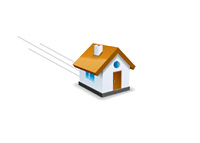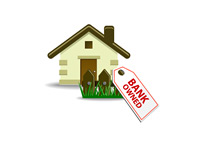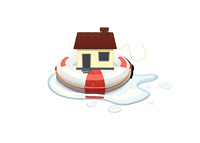Will a Three Percent Fed Funds Rate Help to Revive the Housing Market in the United States?
 With the housing market plummeting and many Americans watching their net worths evaporating before their eyes, the Federal Reserve has undertaken an aggressive campaign to lower interest rates. First, they cut rates by 75 basis points during an emergency Fed meeting earlier in January, which was followed by an additional 50 basis point cut later in the month. These are massive, once in a generation interest rate cuts that are intended to ease the burden on the US financial system that has been caused by plummeting home values.
With the housing market plummeting and many Americans watching their net worths evaporating before their eyes, the Federal Reserve has undertaken an aggressive campaign to lower interest rates. First, they cut rates by 75 basis points during an emergency Fed meeting earlier in January, which was followed by an additional 50 basis point cut later in the month. These are massive, once in a generation interest rate cuts that are intended to ease the burden on the US financial system that has been caused by plummeting home values.The big question is: will these rate cuts actually help to resuscitate the wilting US housing market?
My personal opinion is: not really.
There are many issues plaguing the housing market right now that can't simply be solved by dropping interest rates.
The US housing market went absolutely bananas from approximately 2001 up to 2005. Much of this boom was enabled by low interest rates and extremely loose lending standards. When you look at average home prices in the US historically, you will see that from 2001-2005, the average values deviated wildly from their historical averages. Meaning, if you have a massive, once in a lifetime boom, don't be surprised to see some major pullback once the boom ends. This is just a natural part of any cycle, whether it be an economic cycle or a housing cycle.
Lower interest rates don't change the fact that many view the current housing market as still being overpriced. No matter how low the interest rates are, that doesn't mean that people are going to overpay for homes. Low interest rates don't change the fact that there is way too much supply on the market due to increased foreclosures. Low interest rates don't change the fact that many banks and lenders have a great deal of foreclosured properties on their books that they need to get rid of.
The housing market will only truly bottom once supply starts to dwindle and demand starts to pick up. To do this, a great deal of foreclosed properties need to be eradicated from the books of banks and lenders. Construction of new homes and highrises needs to dramatically slow. Values need to fall further.
The economy needs to pick up as well. Most people are not looking to buy homes when there is a possibility of a recession just around the corner. The US economy is struggling right now - would you buy a home if you thought you might get laid off in the near future? Probably not.
Low interest rates don't really mean much if banks continue to tighten their lending standards. Banks are only looking to lend to the cream of the crop right now; those with good credit, verifiable income and assets. The reason? They have many foreclosed properties on their books. One of the biggest reasons that the US housing market exploded in the first place is that banks would lend to practically anyone. Until banks start feeling more comfortable and working through these massive subprime mortgage write-offs, the market won't start to recover.
Here is what we really need to turn the housing market around in the United States. An improved economy. Decreased supply. Relaxed lending standards from banks. Only then will you have increased demand, and only when you have increased demand will you have increased optimism, which will lead to a bottom in the housing market.
Lower interest rates won't do much for helping to prop up the housing market in the short-term. The housing market needs to work off some of the tremendous excesses seen throughout the first part of the decade.
Filed under: Real Estate News | General Market News | General Knowledge



